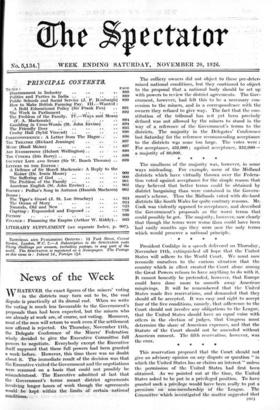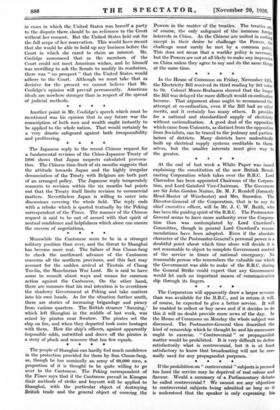This reservation proposed that the Court should not give an
advisory opinion on any dispute or question " in which the United States has or claims an interest " unlesi the permission of the United States had first been obtained. As we pointed out at the time, thc United States asked to be put in a privileged position. To have granted such a privilege would have*enreally,to put a. premium on ' non-membership Of the 'League. the Committee which investigated the matter suggested that in cases in which the. United States was herself a party to the dispute there should be no reference to the Court without her consent. But the United States held out for the full scope of her reservation. This would have meant that she would be able to hold up any business before the Court in which she cared to claim an interest. Mr. Coolidge announced that as the members of the Court could not meet American wishes, and he himself was unwilling to ask the Senate to modify its resolution, there was " no prospect " that the United States would - adhere to the Court. Although we must take that as decisive for the present we cannot believe that Mr. Coolidge's opinion will prevail permanently. American ideals are nowhere stronger than in respect of the spread of judicial methods.































































